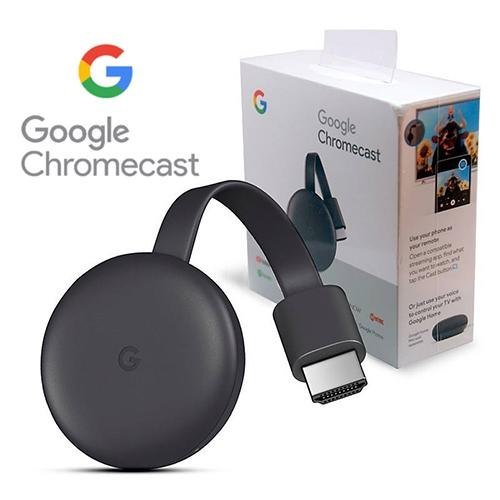Chromecast, developed by Google, has revolutionized the way
we stream content on our TVs. It's a nifty device that allows you to cast your
favorite movies, shows, and videos from your smartphone, tablet, or computer to
your TV screen. However, one crucial element often overlooked by users is the
necessity of a WiFi connection.
In this article,
we'll delve into why Chromecast needs WiFi, its advantages, drawbacks, and
provide you with essential insights to enhance your streaming experience.
"Chromecast device casting content to a TV"
1. Why Chromecast Needs WiFi
Chromecast relies on a WiFi connection for several key
reasons:
- Data
Transfer: WiFi enables seamless data transfer from your casting device
(phone, tablet, or computer) to the Chromecast dongle connected to your
TV.
- Content
Access: It provides access to streaming platforms like Netflix,
YouTube, Hulu, and more, allowing you to stream content directly from the
internet.
- Remote
Control: WiFi allows you to control playback, adjust volume, and even
mirror your device's screen effortlessly.
- Firmware
Updates: Chromecast receives essential firmware updates through WiFi,
ensuring it functions optimally and securely.
2. Advantages of Using WiFi with Chromecast
"Experience high-quality streaming and multitasking with Chromecast and WiFi."
- High-Quality
Streaming: WiFi ensures a stable and high-speed connection, enabling
you to enjoy content in HD or 4K, if supported.
- Multitasking:
You can use your casting device for other tasks while streaming, as
Chromecast handles the streaming process independently.
- Guest
Mode: Chromecast's Guest Mode relies on WiFi, allowing guests to cast
content without needing to connect to your home network.
3. Drawbacks of Chromecast Without WiFi
- Limited
Functionality: Without WiFi, Chromecast becomes essentially unusable,
as it relies on internet connectivity for streaming.
- Dependence
on Mobile Data: Using mobile data as an alternative to WiFi can
quickly consume your data plan, leading to additional costs.
- Inconsistent
Performance: Mobile hotspots or public WiFi networks might provide
inconsistent performance, leading to buffering and quality issues.
4. Tips for Optimizing Chromecast on WiFi
"Learn how to maximize your Chromecast's potential with these WiFi optimization tips."
- Router
Placement: Position your router centrally for optimal WiFi coverage in
your home.
- Network
Speed: Ensure you have a high-speed internet plan to prevent buffering
issues.
- WiFi
Security: Protect your WiFi network with a strong password to prevent
unauthorized access.
- Router
Updates: Regularly update your router's firmware to maintain a stable
connection.
5.
FAQs
Can I use Chromecast without a WiFi connection?
No, Chromecast relies on a WiFi connection for streaming content. Without
WiFi, its functionality is severely limited.
Can I use mobile data instead of WiFi for Chromecast?
Yes, you can use mobile data, but be cautious as it can quickly consume
your data plan, leading to additional costs.
What if my WiFi network is slow?
If your WiFi
is slow, consider upgrading your internet plan or optimizing your network setup
for better performance
6.
Conclusion
- In conclusion, Chromecast's dependency on WiFi is essential for its seamless operation. The advantages, including high-quality streaming, multitasking capabilities, and Guest Mode, make it a versatile and convenient streaming solution. However, it's crucial to address the drawbacks, such as limited functionality without WiFi and potential data costs, to maximize your Chromecast experience.
- In conclusion, Chromecast's dependency on WiFi is not just a requirement; it's the very foundation of its seamless operation. The advantages it brings to the table, including high-quality streaming, the ability to multitask while casting, and the convenience of Guest Mode, make it a versatile and indispensable streaming solution.
- However, it's essential to be aware of the limitations as well. Without a WiFi connection, Chromecast's functionality is severely handicapped, rendering it nearly useless for its intended purpose. Moreover, relying on mobile data as a substitute can lead to unexpected data costs, potentially denting your wallet.
- To make the most out of your Chromecast experience, it's crucial to prioritize your WiFi setup. Ensure you have a robust and fast internet connection, position your router strategically, and keep your network secure. Regular updates to your router's firmware will help maintain a stable connection, ensuring that you can fully enjoy the world of streaming that Chromecast opens up.
- In essence, while Chromecast needs WiFi, it's not just a necessity; it's the gateway to a world of entertainment and convenience. By understanding and optimizing your WiFi setup, you can unlock the true potential of Chromecast and elevate your streaming experience to new heights. So, connect, cast, and enjoy the world of entertainment at your fingertips!


.jpg)
.jpg)

0 Comments